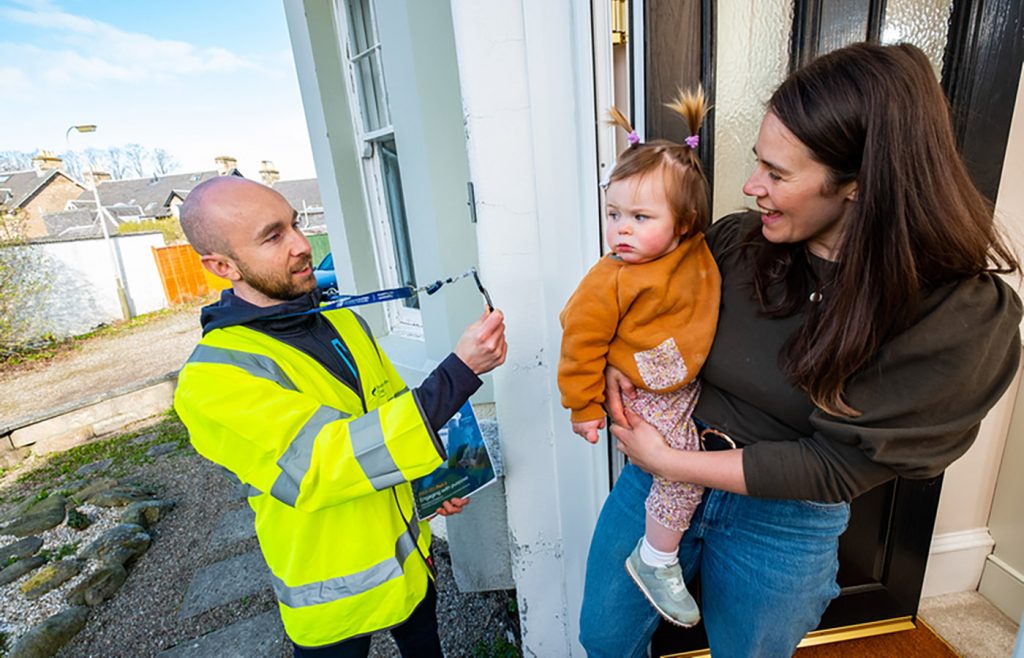
Scottish and Southern Electricity Networks (SSEN) Distribution is launching the Household Or Microbusiness Energy flexibility (HOMEflex) project, which will develop the tools to build trust in the domestic flexibility market and support consumers’ engagement.
Flexibility is the ability to shift the timing and location of the consumption and generation of electricity, to allow distribution network operators (DNOs) like SSEN to balance supply and demand and to manage constraints on the network cost effectively. Flexibility could reduce the costs of modernising the UK energy system by up to £10 billion a year and create up to 24,000 jobs by 2050.
Flexibility trading markets with commercial and industrial partners are already operational, but the scope for domestic consumers and microbusinesses to engage and trade is in its infancy. The HOMEflex project will work to build the trust that consumers need to engage with the market.
HOMEflex will ensure the domestic flexibility market is inclusive, fair and transparent, with clear lines of accountability to ensure participants abide by their commitments and to guarantee customers are protected and rewarded. It will also benefit flexibility service providers, who will be able to demonstrate their credibility to customers. HOMEflex partners, Flex Assure, established by the Association for Decentralised Energy (ADE), will oversee the development of:
- a Code of Conduct for domestic flexibility services
- frameworks and business models for a voluntary compliance scheme and a mechanism for customer complaints which could include dispute resolution
- a recommended trust mark for aggregators and other market players who have signed up to the Code and redress schemes
The Centre for Sustainable Energy (CSE) will lead a research programme as part of the project, using focus groups to ensure consumers’ priorities and concerns are at the heart of the project. They will also test the design of the HOMEflex code with consumers to evaluate whether their confidence in domestic flexibility services has been positively affected.
Additional considerations will be built into the work around how to support and encourage vulnerable consumers to engage in new markets and whether flexible solutions could be deployed to deliver benefits and savings. Legal firm Osborne Clarke will provide legal advice and review scheme documentation for the project.
Simon O’Loughlin, Project Manager for HOMEflex at SSEN, said: “The embryonic flexibility market for domestic and microbusinesses will not develop if customers do not feel confident of a fair marketplace. This would be a missed opportunity, given a recent trial found that households which own an electric vehicle can reduce the proportion of their energy consumed at peak times by 23%, in response to a request. This flexibility is valuable to network operators to balance the grid cost effectively, helping to keep costs lower for customers.
“The HOMEflex project will provide the tools to ensure all participants, from the DNO to the aggregator who acts as a go-between, to the domestic or microbusiness customer, can have confidence in the process and the market. SSEN is also working to ensure that vulnerable customers and communities are not left behind in the transition to a net zero energy system and we are delighted to be building on our previous work with CSE, to ensure the future is smart and fair.”
Lily Frencham, CEO of the Association for Decentralised Energy, said: “Domestic flexibility will play a crucial role in the energy system of the (not too distant) future. It is a key element in helping us to reach net zero, in reducing energy dependency and increasing security, in making best-use of new and existing energy infrastructure and – most importantly – in ensuring energy customers are well served by the system.
“Trust in the markets will be essential to making this happen and the HOMEflex project is an exciting and important step towards establishing this. The ADE, through FlexAssure, are proud to be involved.”
As well as working with Flex Assure, SSEN is collaborating with CSE on delivery of the two-year HOMEflex project, which has received Network Innovation Allowance (NIA) funding of £331,000 and is supported by the Energy Networks Association’s (ENA) Open Networks Project.





